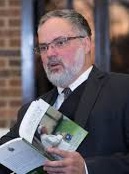The Joyful Mystery: Field Notes toward a Green Thomism
/Christopher J. Thompson’s first publication formally introducing his “Green Thomism” is a work of art. For years, Thompson has been quietly coordinating this Thomistic vision for ecology through his Chapelstone Foundation and with a number of articles calling for theologians and other thinkers to give serious moral consideration to the intersection of the Catholic worldview and the growing need for ecological stewardship. Now, he weaves together an integral account that convincingly presents our contemporary deficit with regard to the natural order of lower creation and also argues for a proper vision rooted in the Thomistic philosophical and theological tradition. Throughout, Thompson relies upon the doctrine of Pope Francis’s Laudato Si’, beautifully demonstrating the Thomistic precedent in the holy father’s encyclical.
The Joyful Mystery: Field Notes toward a Green Thomism is available from Emmaus Road Publishing in their Living Faith Series as a small, easy-to-read and easy-to-enjoy hardback. It is accessible at a popular level to readers who have some familiarity with the Catholic Thomistic tradition. Just because it is accessible, however, does not mean that it is not intellectually worthwhile. Its import primarily lies, however, in its ability to personally challenge the reader to convert their minds and hearts and habits to Jesus Christ, the Logos Incarnate, the same sapiential Logos who both creates and redeems in a joyful mystery, summoning a proper response of awe and adoration from us rational animals.
- Reviewed by Brandon L. Wanless




